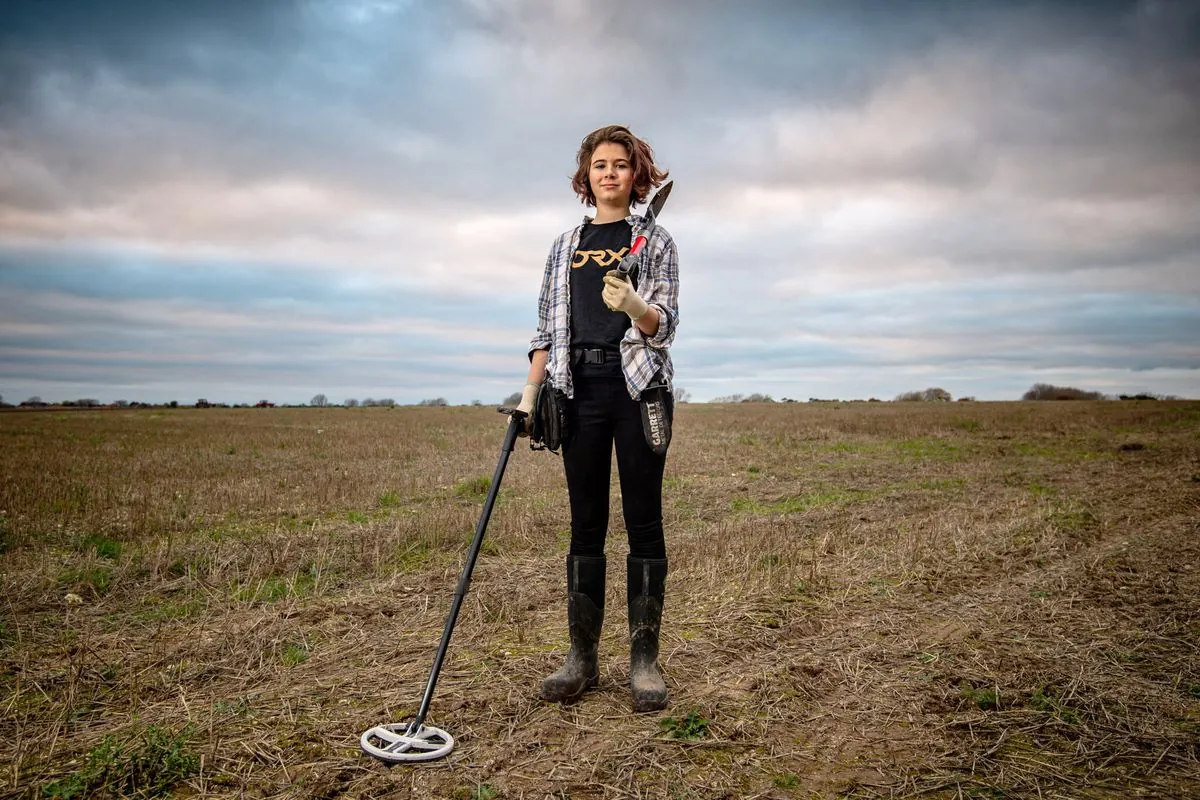Ukraine's Women Lead Charge in Crucial Demining Efforts
In war-torn Ukraine, women are taking on the dangerous task of demining, covering vast areas with specially trained dogs. This shift reflects broader changes in gender roles across various sectors of the Ukrainian economy.

In Ukraine, a nation grappling with the aftermath of Russia's full-scale invasion, women are stepping into crucial roles to safeguard their country's future. Among these brave individuals is Kateryna Nahorna, a 22-year-old member of an all-female team of dog handlers training Belgian Malinois to detect explosives.
The scale of their task is immense. Ukraine is currently estimated to be the most heavily mined country globally, with nearly 25% of its territory potentially contaminated with unexploded ordnance. This situation poses a significant threat to both human life and economic recovery.
The specialized canines can survey 1,500 square meters daily, a stark contrast to the 10 square meters covered by human deminers. This efficiency is crucial in a country where over half the land is dedicated to agriculture, earning Ukraine its moniker as the "breadbasket of Europe."
"This job allows me to be a warrior for my country … but without having to kill anyone. Our men protect us at war, and we do this to protect them at home."
The recruitment of women for this dangerous work is partly due to practical constraints. With military-aged men prohibited from leaving Ukraine, the specialized training conducted in Cambodia by the nonprofit Apopo became an opportunity for women to contribute significantly to national security.

This shift in gender dynamics extends beyond demining. Women are increasingly taking on roles traditionally held by men across various sectors of the Ukrainian economy. In Mykolaiv's industrial east, women are working in steel mills, factories, and railways serving the front line.
The change is notable in a country where, before the war, only 48% of women over 15 participated in the workforce - one of Europe's lowest rates. Today, the Ukrainian army counts 50,000 women among its ranks, up from 30,000 before the conflict began.
This transformation was catalyzed in 2017 when the Ukrainian government overturned a Soviet-era law that had previously barred women from 450 occupations. However, challenges persist, with some jobs still deemed too physically demanding for women by the government.
The demining efforts are not just about immediate safety but also about economic recovery. The UK-based Tony Blair Institute for Global Change estimates that landmines have resulted in annual GDP losses of $11 billion for Ukraine. The urgency of this work is palpable, especially for farmers who feel pressured to plow potentially dangerous fields.
Jon Cunliffe, Ukraine country director of Mines Advisory Group (MAG), emphasizes the importance of surveying to reduce the size of potentially contaminated areas. Organizations like MAG are increasingly targeting women for recruitment, recognizing their potential for long-term commitment to this crucial work.
The shift towards female deminers in Ukraine is part of a global trend. In countries like Vietnam, Colombia, Cambodia, and Myanmar, women now make up a significant portion of the demining workforce, sometimes exceeding 50%.
As Ukraine looks to the future, the role of women in demining and other critical sectors is likely to grow. This change not only addresses immediate needs but also promises to reshape career trajectories and societal norms in the long term. The courage and dedication of these women are not just clearing the land of mines but also paving the way for a more equitable and resilient Ukraine.


































